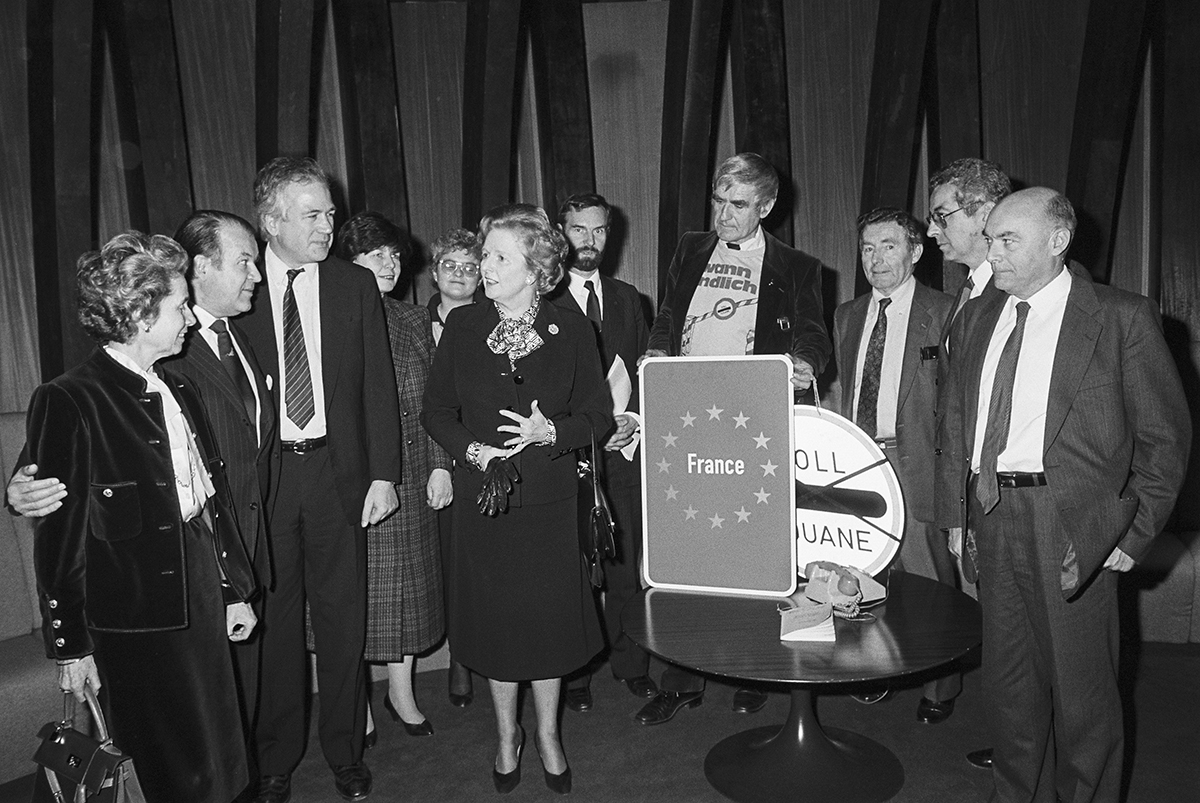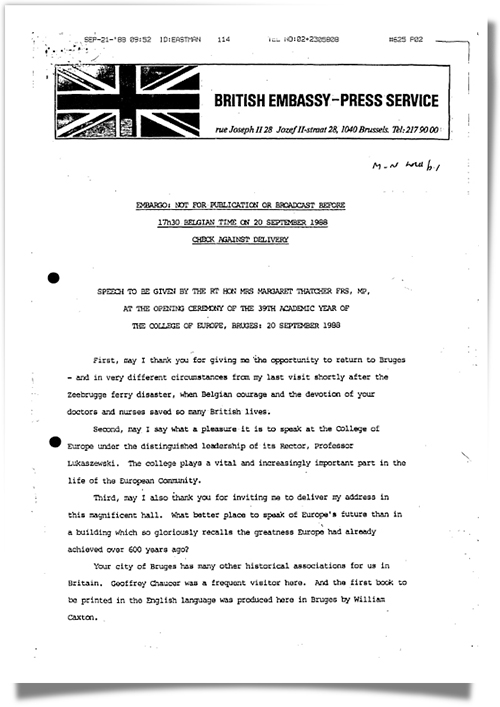Mediating the UK-EU relationship
Under the presidency of Jacques Delors, the European Commission promoted a policy of economic and monetary union as a cornerstone of integration, and attempted to match the advances in free trade by proposing a European Social Charter to guarantee minimum social standards for all European workers. On the contrary, the 'Iron Lady' had endeavoured to block the progress towards European integration since the early 1980s, and strove to reduce the British contribution to the European Economic Community budget.
 Visit of Margaret Thatcher, Prime Minister of the United Kingdom at the European Parliament in Strasbourg. Pictured: Christiane Scrivener, Basil De Ferranti, Karl von Wogau, Margaret Thatcher, George Benjamin Patterson, Dieter Rogalla, Thomas Raftery, Fernand Herman © European Communities 1986
Visit of Margaret Thatcher, Prime Minister of the United Kingdom at the European Parliament in Strasbourg. Pictured: Christiane Scrivener, Basil De Ferranti, Karl von Wogau, Margaret Thatcher, George Benjamin Patterson, Dieter Rogalla, Thomas Raftery, Fernand Herman © European Communities 1986
In a famous speech at the College of Europe in Bruges on 20 September 1988, Margaret Thatcher again maintained that the United Kingdom should stay out of the European Monetary System. Lord Plumb sharply criticised her reluctance to take up the new European challenge.

Addressing representatives of British industry in November 1988, Lord Plumb called for the United Kingdom to join European political and economic union without further delay. The British resistance was causing problems in a political context in which the campaign for the June 1989 European Parliament elections was looming increasingly large. In the conclusions of the Madrid European Council (26-27 June 1989), the Heads of State or Government announced their determination to move gradually towards economic and monetary union and their decision that the preparations would be set in motion on 1 July 1990. Thatcher raised no objections, although she did not accept the need for a new treaty.